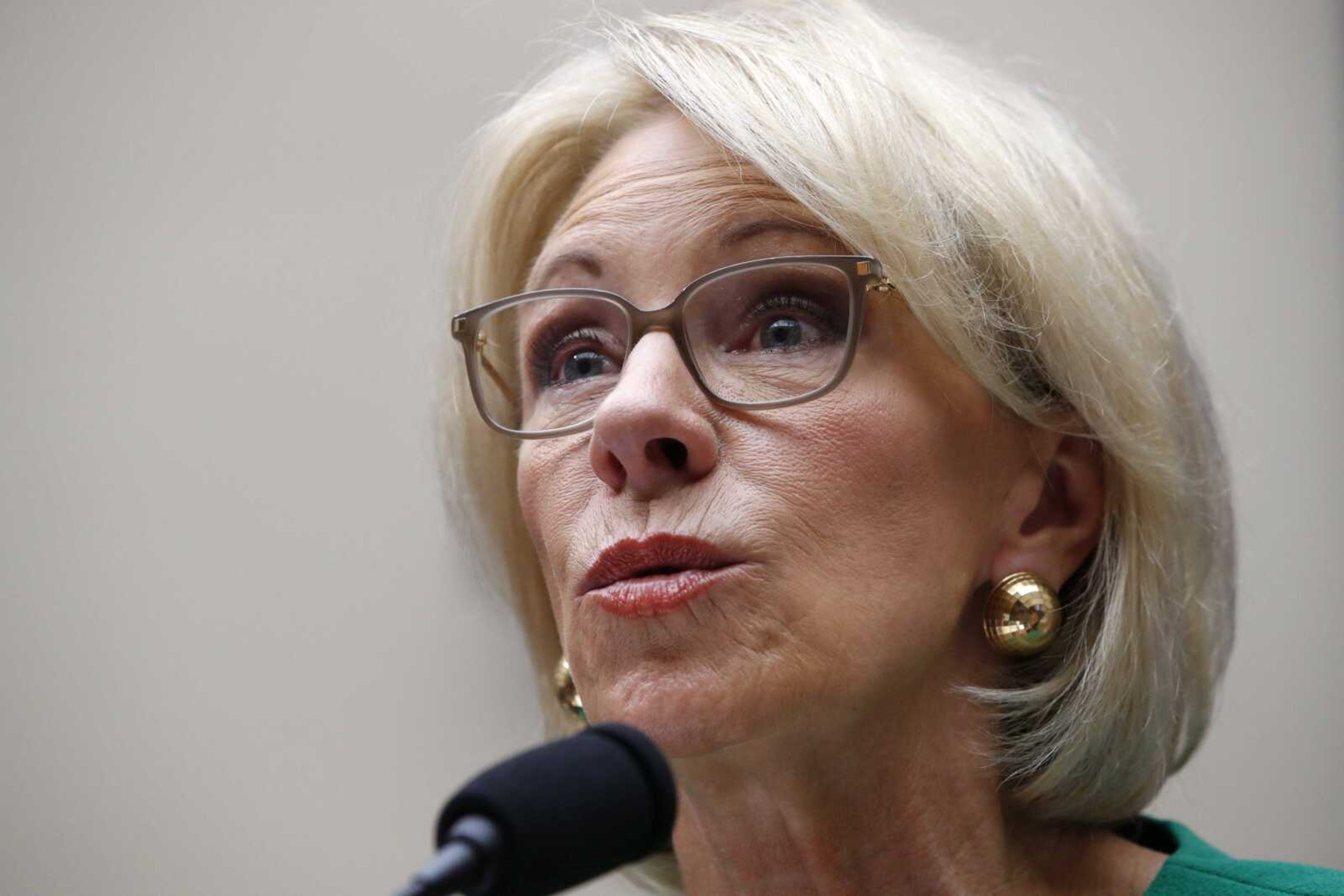WASHINGTON -- The Trump administration said Tuesday it would not encourage schools to use race as a factor in the admissions process, rescinding Obama-era guidance meant to promote diversity among students.
The shift gives schools and colleges the federal government's blessing to leave race out of admissions and enrollment decisions and underscores the contentious politics for decades surrounding affirmation action policies, which have repeatedly been challenged before the Supreme Court.
The Obama administration memos encouraging schools to take race into account were among 24 policy documents revoked by the Justice Department for being "unnecessary, outdated, inconsistent with existing law, or otherwise improper." Attorney General Jeff Sessions said the changes will restore the "rule of law."
The action comes amid a high-profile court fight over Harvard University admissions attracting the government's attention, as well as Supreme Court turnover expected to produce a more critical eye toward race-conscious admissions policies.
The court's most recent significant ruling on the subject endorsed colleges' use of race among many factors in the admission process. But the opinion's author, Justice Anthony Kennedy, announced his retirement last week, giving President Donald Trump a chance to replace him with a judge who may be more reliably skeptical of admissions programs taking race and ethnicity into account.
The new policy departs from the stance of the Obama administration, which on multiple occasions said schools could consider race in admissions decisions and should do so to foster diversity. In one 2011 policy document, for instance, the administration said courts had recognized schools' "compelling interest" in ensuring racially diverse populations on campuses.
"Institutions are not required to implement race-neutral approaches if, in their judgment, the approaches would be unworkable," the document said. "In some cases, race-neutral approaches will be unworkable because they will be ineffective to achieve the diversity the institution seeks."
That guidance has been rescinded, as have others, including some explaining rulings affirming the use of race in admissions.
"As the Supreme Court has recognized," one of the documents states, "diversity has benefits for all students, and today's students must be prepared to succeed in a diverse society and an increasingly global workforce."
The Trump administration's announcement is more in line with Bush-era policy discouraging affirmative action and instead encouraging the use of race-neutral alternatives, such percentage plans and economic diversity programs.
Though such guidance doesn't have the force of law, schools could presumably use it to defend themselves against lawsuits.
The Trump administration's Justice Department already had signaled concern about the use of race in admissions decisions.
The department, for instance, sided this year with Asian-American plaintiffs who contend in a lawsuit against Harvard the school unlawfully limits how many Asian students are admitted.
Students for Fair Admissions, the group suing Harvard, is led by Ed Blum, a legal strategist who also helped white student Abigail Fisher sue the University of Texas for alleged discrimination in a case reaching the Supreme Court. Blum said Tuesday the organization "welcomes any governmental actions that will eliminate racial classifications and preferences in college admissions." Harvard, meanwhile, said it would continue considering race as an admissions factor to create a "diverse campus community where students from all walks of life have the opportunity to learn with and from each other."
Civil rights groups criticized the Trump administration's announcement, saying it went against decades of court precedent permitting colleges to take race into account.
"We condemn the Department of Education's politically motivated attack on affirmative action and deliberate attempt to discourage colleges and universities from pursuing racial diversity at our nation's colleges and universities," Kristen Clarke, president and executive director of the Lawyers' Committee for Civil Rights Under Law, said in a statement.
Lily Eskelsen Garc'a, president of the National Education Association, said "affirmative action has proven to be one of the most effective ways to create diverse and inclusive classrooms." She said the announcement underscored the stakes surrounding the upcoming Supreme Court appointment.
The high court has been generally accepting of considering race in admissions decisions to achieve diversity. In a 2016 opinion written by Kennedy, the court granted affirmative action policies a victory by permitting race to be among the factors considered in the college admission process.
The ruling bitterly disappointed conservatives who thought Kennedy would be part of a Supreme Court majority to outlaw affirmative action in education. Justice Antonin Scalia died after the court heard arguments in the case but before the decision was handed down.
The new affirmative action guidance may add to an already contentious fight over the next justice. With Trump expected to announce his nominee next week, the issue should be a central part of any confirmation process, said Howard University law school dean Danielle Holley-Walker.
She called the new guidance "highly unfortunate and counterproductive" and said the decision is another indication that the Justice Department under Sessions is likely to be aggressive toward schools continuing to factor in race in admissions decisions.
"People have been talking about precedent in regard to Roe. v. Wade" -- the landmark 1973 ruling affirming a woman's right to abortion -- "but it's important to remember that affirmative action has been a precedent for the past 40 years," she said. "This is a clear attack on precedent. Any Supreme Court nominee needs to be asked if they support precedent related to affirmative action."
Connect with the Southeast Missourian Newsroom:
For corrections to this story or other insights for the editor, click here. To submit a letter to the editor, click here. To learn about the Southeast Missourian’s AI Policy, click here.







